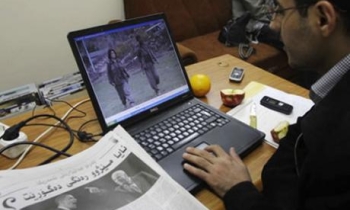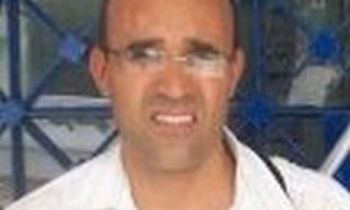This year's series of controversies about high-profile reporters and their government sources led me to think about the condition of journalism instruction that I have observed while teaching potential future journalists at a half-dozen colleges and universities.
I began teaching as a part-time adjunct because my perception during occasional guest lectures had been that my areas of expertise -- journalism and public relations -- often were taught by people who had little direct knowledge of the fields.
Recently I mentioned to a couple of friends who have forged distinguished journalistic careers that, in my two most recent teaching positions, I have been replaced by a 25-year-old woman with no professional journalism experience and a 24-year-old man with a similar lack of experience. Each is primarily responsible for the journalism program at her and his educational institution.
A Ph.D. from the least rigorous of academic institutions -- including online -- trumps not only my master's degree in communication but a combined 28 years of experience in journalism and public relations. Though I have a withdrawal-in-good-standing card from the Newspaper Guild, I do not have a doctorate.
One of my friends, who edits a major metropolitan newspaper, commented, "So what you are saying is that the people teaching journalism at these places are mediocrities who have never been in a newsroom." Since I am a teacher, too, I wasn't being that direct; but my friend has a point. Many college-level teachers of journalism are unfamiliar with the day-to-day practice. Journalism is closer to a craft than a theory, yet most often -- as my other friend pointed out -- teaching journalism at the college level requires credentials more appropriate to an English department, where theories and schools of critical thought are paramount.
Possessing credentials that allow me to enter a college classroom but not remain there on tenure track, I find it ironic that almost all of my journalistic education came from writing and editing articles, consulting on issues with editors and colleagues, attending professional conferences and absorbing such principles as fairness, accuracy and responsibility to the reader above other competing loyalties.
The development of a journalist follows a path similar to an apprenticeship. Future journalists learn the skills and culture of the trade from practitioners who have preceded them. This runs counter to the prevailing academic notion that the person best qualified to teach journalism is the person who holds a so-called terminal degree after studying, for example, the history of journalism.
Here's how it fails to work: An academic colleague was the director of a course whose instructors taught journalism to hundreds of students at a Big Ten university. She asked me to help her supervise a final exam that consisted of students writing a news article.
As I listened to her talk to students -- often referring them to me on basic questions such as how to write a lead paragraph -- I realized she knew next to nothing about putting together a news story. Her newsroom experience had been spending several weeks as a copy editor while on a fellowship.
Having become increasingly certain that a free and responsible press is vital to the welfare of our democratic society, I am concerned that influential educators show so little understanding of a profession based on the same principle of inquiry.
In my view -- and that of my journalist friends -- a teacher of journalism needs to know what it means to be a journalist.
Controversial or not, The New York Times' Judith Miller, The Washington Post's Bob Woodward and CNN's (now Fox's) Robert Novak have demonstrated they are willing to stand firm on the principles that support this often beleaguered profession. Ms. Miller went to jail rather than reveal a source, Mr. Woodward has refused to react to critics who are trying to trivialize his recent work as stenography for the White House, and the conservative Mr. Novak is willing to point a finger at a Republican president in order to defend his colleagues.
They demonstrate professional rather than academic values.
Until colleges and universities recognize the importance of allowing journalists to enter the classroom on equal footing with Ph.D.s in order to transmit such values to future journalists, the education of the generation that will produce the next Judith Miller, Bob Woodward or Robert Novak will too often be left to teachers who have only a theoretical notion of what makes a journalist tick.
As one of my friends said, "That's dishonest" -- not a desirable quality in a journalist.









